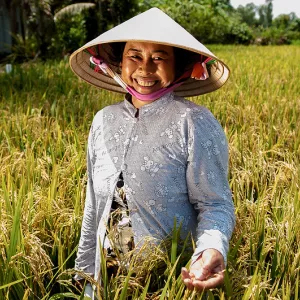One CGIAR cross-initative collaboration on Farming Systems Analysis in support of user-centred research and innovation
Farming Systems Analysis (FSA) is commonly used in CGIAR to assess ‘what works where, and for who?’. The findings are used to prioritize tailored/context-specific interventions and target investments for greater impact. An assessment of seven new CGIAR initiatives showed us that FSA is employed in a similar way across these initiatives, opening up avenues for strong collaboration and sharing of

One CGIAR cross-initative collaboration on Farming Systems Analysis in support of user-centred research and innovation
Farming Systems Analysis (FSA) is commonly used in CGIAR to assess ‘what works where, and for who?’. The findings are used to prioritize tailored/context-specific interventions and target investments for greater impact. An assessment of seven new CGIAR initiatives showed us that FSA is employed in a similar way across these initiatives, opening up avenues for strong collaboration and sharing of data, methods and results to achieve better synergies than we have done in the past.
In September 2022, representatives from seven CGIAR Initiatives: Mixed Farming Systems, Livestock and Climate, Nature Positive Solutions, Sustainable Animal Productivity, and Diversification in East and Southern Africa, Climate Resilience, and Excellence in Agronomy, came together to coordinate FSA-related work. Through better coordination and building shared resources and approaches, the team’s aim is to:
- demonstrate the potential of FSA to enhance impact of CGIAR’s interventions along the various CGIAR Impact Areas; and
- encourage the use of global best practices in FSA across CGIAR initiatives
The One CGIAR Initiatives Joint Workshop on Farming Systems Analysis developed an actionable framework to structure work around two ‘use cases’ in which FSA will be implemented.
- Use case #1: Credit access in Kenya. Making better use of existing micro-level data, the team will develop, perform and scale a climate vulnerability assessment to better evaluate the investment in climate risk insurance to improve climate risk management.
- Use case #2: Prioritization and targeting of agronomy-related sustainable intensification options in Malawi. The team will make use of newly available micro and macro level data to diagnose investment opportunities for agronomy-related technologies and scale up these results. Topical and regional initiatives will come together in this exercise.
Read more about the upcoming FSA work here – https://hdl.handle.net/10568/126730

